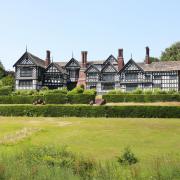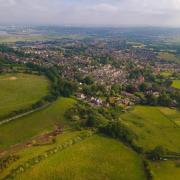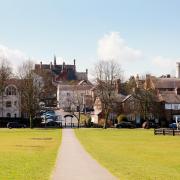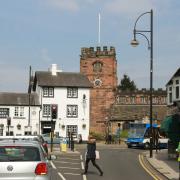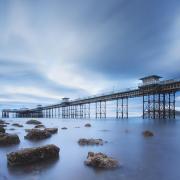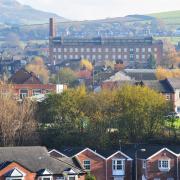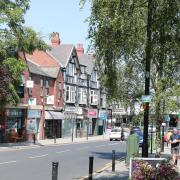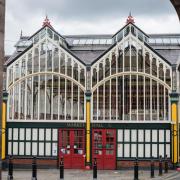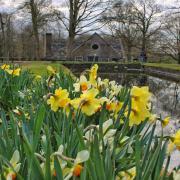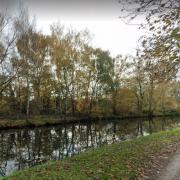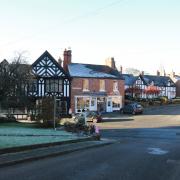New direct flights from Manchester Airport to Beijing promise a new wave of tourists to the Chinese capital, writes Howard Bradbury

After taking a cable car up through steep wooded ravines, we clamber the last few hundred yards up the hill, and emerge, breathless, onto the Great Wall of China.
Above us, the wall - with its craggy stone steps and sheer unguarded drops at each side - climbs away up the mountain ridge. Below us, the wall meanders into the far distance like a ribbon dropped at random across this verdant landscape.
To see it is to be amazed. The sum total of fortifications spanning two millennia, the Great Wall is quite simply the greatest structure ever made by mankind. Some parts of it are thronged with tourists. But here, at the Simatai Great Wall - two and half hours drive from the centre of Beijing - we share this awesome experience with only a few dozen others. That may change. In the valley below, Gubei Water Town - a picturesque redevelopment of a Ming Dynasty village into canalside hotels and restaurants - aims to draw tourists in greater numbers.
Some of those tourists may come from the north west of England. Hainan Airlines began a four-times weekly direct service between Manchester and Beijing in June - recognition of the fact that 100,000 passengers were already travelling between those two cities every year. The Manchester-Beijing route is expected to yield economic benefits for the UK totalling £250m in the next decade. Those business travellers will not just get there quicker than before - ten hours or so - they will also be well catered for: top-notch airline cuisine from chefs in the UK and China, and comfy fold-flat business class seats.

For the tourists, the many attractions of Beijing include the pandas at the city’s zoo (loafing around and scoffing bamboo shoots, as pandas are wont to do, on our visit), the chance to wander the vast and historically-resonant Tiananmen Square, and the Forbidden City, the 400-year-old wooden complex of halls, palaces and courtyards (9,999 rooms in all) where the emperor and his 3,000 wives and concubines once lived.
We visit the picturesque parkland surrounding the 15th century Temple of Heaven to take a lesson in tai chi, while curious locals watch with amusement. We go to the Hutong - the Old Town, where we enjoy a class in dim sum-making.
We also witness, in the Hutong, what much of Beijing looked like only 30 years ago: narrow alleyways, fit only for cycle rickshaws. Away from this time capsule of old Beijing, the city has sprouted six ring roads to accommodate its 5m cars, and a skyline pricked by high-rise blocks and big-statement architecture, not least the 2008 Olympic stadium, dubbed the Bird’s Nest, but known by the locals, with heartening cynicism, as the ‘Toilet Seat’. The pace of this city - and its frequent pollution haze - takes your breath away. Though the cars in the traffic jams have familiar badges, and the streets are dotted with the icons of western consumerism - KFC, McDonald’s - Beijing still feels properly, intoxicatingly foreign.

While you’re there, see...
The Great Wall of China.
Beijing Zoo, biggest zoo in China, of which the undoubted stars are the five giant pandas.
Tiananmen Square, largest city square in the world, home to Chairman Mao’s mausoleum and scene of student demonstrations in 1989 suppressed through martial law.
The Forbidden City, four centuries-old imperial palace complex and World Heritage Site, divided into such wonderfully-named places as the Hall of Literary Brilliance, the Hall of Preserved Harmony and the Palace of Gathered Elegance.
Eat
Peking duck, obviously, at Quanjude or Bian Yi Fang duck restaurants. Both have several branches in Beijing.
In general, expect food which is not as sweet as the Cantonese style you may know from Chinese restaurants in the UK - delicately-flavoured soups, dishes combining pork and tofu, beef and mushroom with dominant flavours of soybean, stir fries of greens and mushrooms. Strange to us, rice may arrive at the end of the meal, not with the main dishes. Eating out is cheap, about £15 per person.
A show
The Legend of Kung Fu at the Red Theatre in the Dongcheng District. It’s about a warrior monk, has glitzy production values, lots of action, eastern mysticism, but an English narrative.
Stay
The Fairmont Beijing, in the central business district, is from the same hotel group which runs London’s Savoy. A modern marble high-rise palace, it has a sky bridge, floating between two buildings at the 20th floor, where you will find a spa and a Gold lounge for guests in the plush Gold rooms. Lunar 8 is the hotel’s contemporary Asian-style restaurant, and The Cut, is an arty, upmarket steak restaurant.
Shop
For retail mayhem, try Hongqiao Pearl Market, which sells not only pearls, but handbags, electrical gadgets, cameras, jewellery, silks, gifts. Stallholders will clamour for your attention; be prepared to haggle them down to half their asking price or much less. Designer brands may not be what they seem, but with a leather ‘Mulberry’ overnight bag for £20 and a ‘Rolex’ watch for £30, you knew that, right?
The paperwork
Visa-free entry for 72 hours, but any longer and you will need a Chinese visa, which can be obtained in Manchester in three or four days, see www.visaforchina.org
Don’t...
Drink the tap water. Bottled water is widely available. And don’t expect to be able to access websites including Facebook, Twitter and Gmail - all blocked by the Chinese government - unless you have downloaded a VPN (virtual private network) app such as Betternet before travelling.
Key information
HAINAN AIRLINES
Hainan Airlines flies direct to Beijing four times a week from Manchester Airport. It makes Manchester the only UK airport outside London with a direct service to mainland China. The flight takes just over ten hours on an Airbus A330-300 with 32 business class seats and 260 in economy. Fares start from £465, see www.hainanairlines.com
FAIRMONT BEIJING
The Fairmont in Beijing is a five-star hotel in Beijing’s central business district, with easy access to tourist attractions such as Wangfujing Street and entertainment centre, the Forbidden City and the Tiananmen Square. Rooms start from £160 see www.fairmont.com/beijing
MANCHESTER AIRPORT
Manchester Airport is the UK’s Global Gateway for the North with over 210 destinations. You can start your journey off in style by booking in to one of the airport’s three Escape Lounge from just £21. See www.manchesterairport.co.uk for more information.




